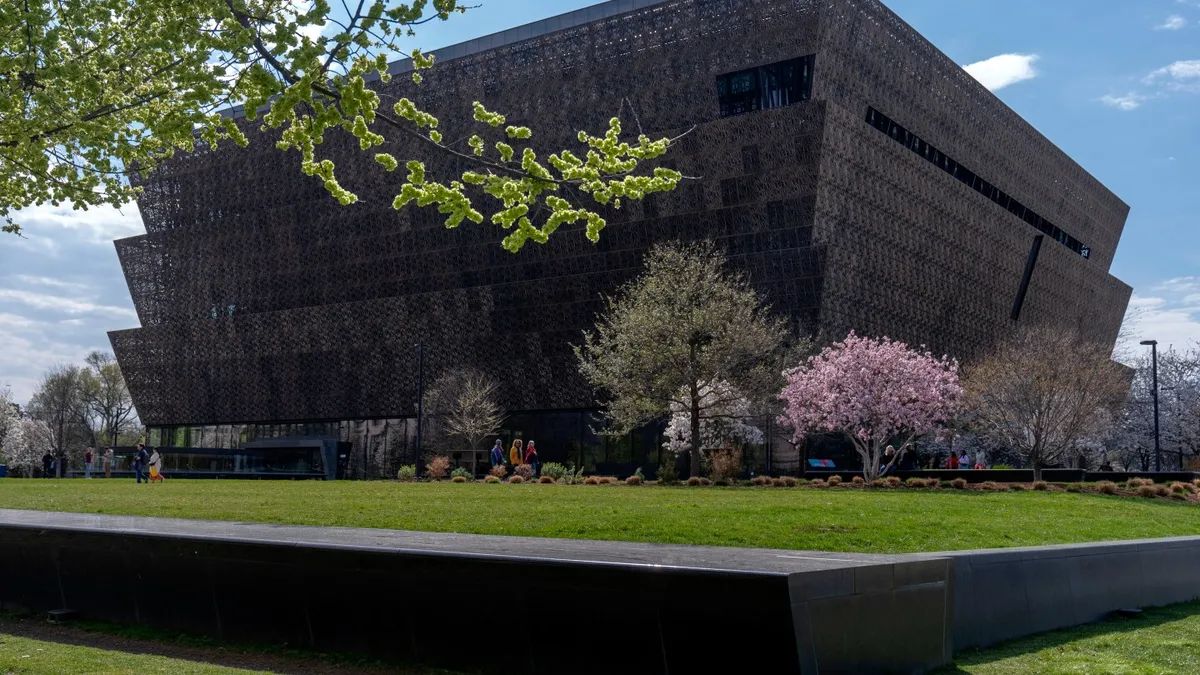
In a recent move that has sparked widespread debate, President Donald Trump issued an executive order challenging the Smithsonian Institution for allegedly failing to accurately represent American history. The order asserts that the country's Founding Fathers proclaimed that “all men are created equal,” yet it conveniently overlooks the fact that slavery was embedded in the U.S. Constitution, which designated enslaved individuals as only three-fifths of a person for Census purposes.
On Friday, civil rights advocates, historians, and Black political leaders vehemently criticized Trump's order, titled “Restoring Truth and Sanity to American History.” They contend that this directive aims to minimize the critical roles that race, racism, and the experiences of Black Americans have played in shaping the nation’s narrative. Historian Clarissa Myrick-Harris, a professor at Morehouse College, articulated concerns that the order seems to deny the existence of slavery and the realities of Jim Crow laws and racial violence against Black communities.
The executive order specifically names the National Museum of African American History and Culture, accusing the Smithsonian of engaging in a “concerted and widespread effort to rewrite our Nation’s history.” Trump claims that rather than celebrating a legacy of liberty and individual rights, the museum promotes a “divisive, race-centered ideology” that misrepresents the United States as fundamentally flawed.
This order empowers Vice President JD Vance to review all properties, programs, and presentations associated with the Smithsonian to eliminate those that “degrade shared American values” or foster racial division. Additionally, Trump has tasked Interior Secretary Doug Burgum with identifying any monuments altered since January 2020 that may perpetuate a “false reconstruction of American history.”
Critics argue that this executive order represents the Trump administration’s ongoing efforts to diminish the acknowledgment of Black Americans and their significant contributions to the nation, while also glossing over the systemic obstacles they have faced. Renowned historian and author Ibram X. Kendi described the order as “a literal attack on Black America itself,” emphasizing the importance of the Black Smithsonian as a crucial element of American history.
Yvette Clarke, Chair of the Congressional Black Caucus, expressed concern that Trump seeks to distort the national narrative for racist purposes, stating, “We do not run from or erase our history simply because we don’t like it.” She emphasized the need to embrace the entirety of the nation’s history, including its less favorable aspects.
The African American Museum, which opened in 2016 during President Barack Obama’s administration, documents the history of chattel slavery, segregation, and the ongoing impact of these issues, while also celebrating the achievements of Black individuals and communities throughout U.S. history. Former NAACP President Ben Jealous highlighted the necessity of museums dedicated to specific marginalized groups, arguing that traditional historical narratives often overlook their contributions.
During his recent campaign, Trump has intensified his criticism of what he labels as “woke” culture, targeting diversity, equity, and inclusion initiatives across both government and the private sector. His administration has implemented policies that ban diversity initiatives, investigate colleges for perceived discrimination against white students, and has even removed educational content acknowledging significant contributions by Black Americans.
Historians and civil rights advocates worry that Trump's actions may lead to a chilling effect on institutions dedicated to studying Black history. Kendi pointed out that many museums and educational centers rely on limited funding and expressed concern that such orders could further endanger their survival, ultimately restricting the narratives available to the public.
As this situation unfolds, the implications of Trump's executive order on American history continue to resonate, raising critical questions about how the nation chooses to remember and interpret its past.